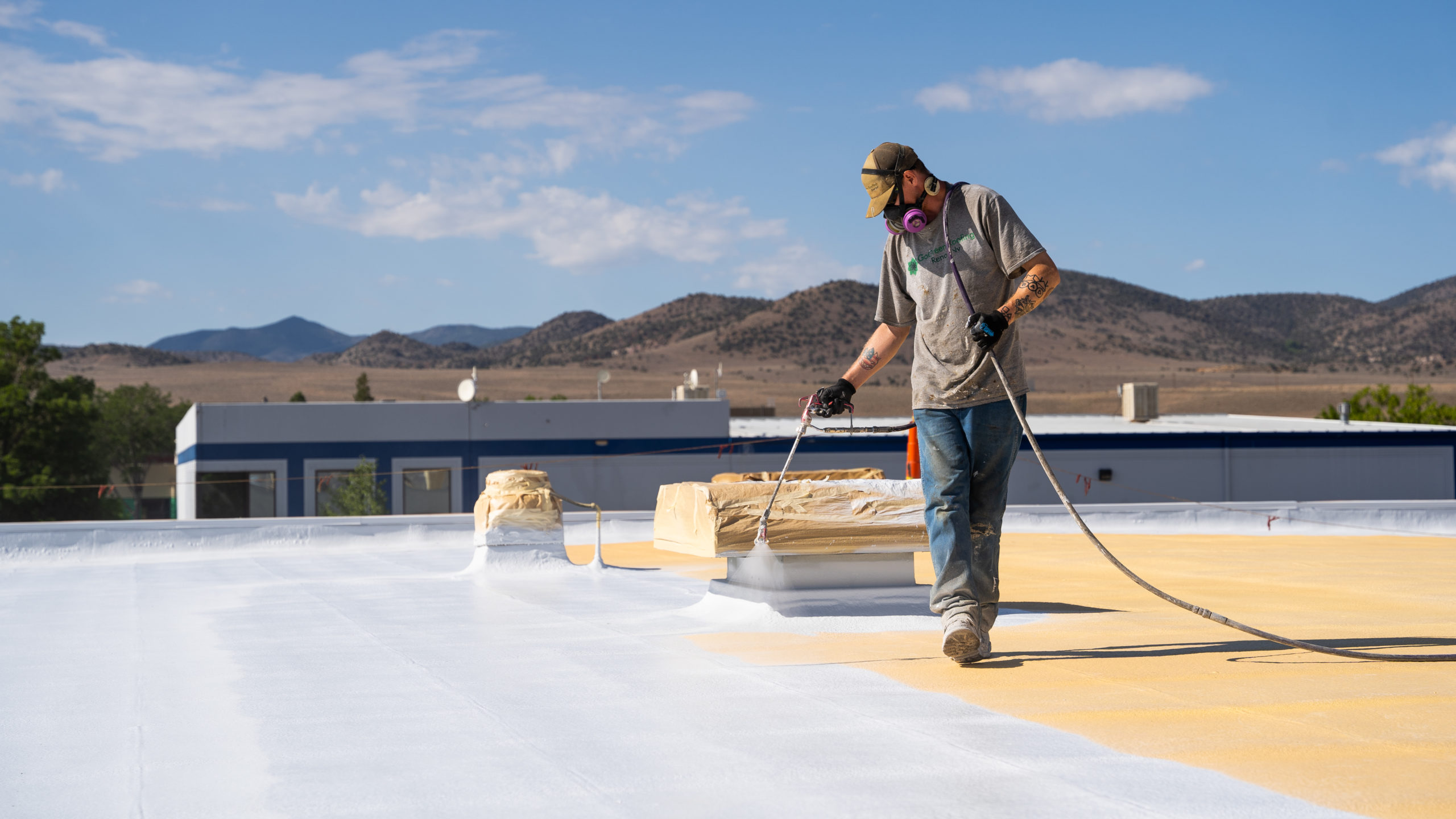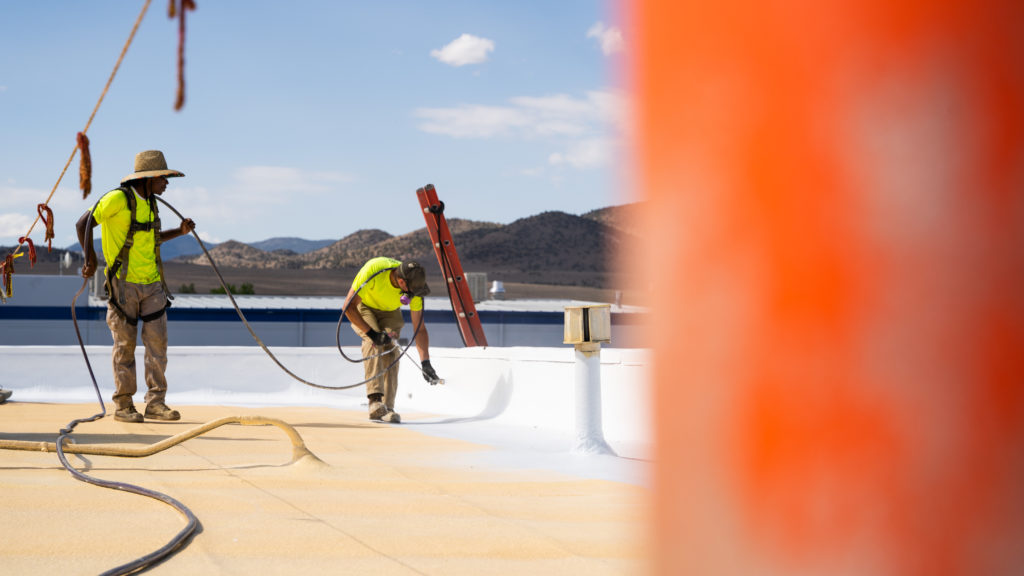
Silicone vs. Acrylic Roof Coatings: Choosing the Best Protection for Your Roof
Roof coatings play a crucial role in extending the life of your roof while providing protection against harsh elements. Among the several types available, silicone and acrylic roof coatings are two popular choices. Both offer unique benefits, but understanding their differences is essential for making an informed decision. Here we will explore the characteristics, advantages, and drawbacks of silicone and acrylic roof coatings to help you determine which option is best suited for your roofing needs.
Silicone Roof Coatings
Silicone roof coatings are known for their exceptional durability and flexibility. They are made of a combination of silicone polymers, solvents, and other additives. This unique formulation offers several benefits:
- Weather Resistance: Silicone coatings are highly resistant to UV rays, extreme temperatures, and moisture, making them ideal for regions with intense sun exposure and fluctuating weather conditions. They maintain their properties over time and do not degrade or chalk like some other coatings.
- Water Repellency: Silicone roof coatings create a seamless, water-resistant barrier that prevents water from penetrating the roof’s surface, making them perfect for standing water applications This quality helps to prevent leaks and water damage within the structure.
- Longevity: Silicone roof coatings have an impressive lifespan, often lasting over 20 years, depending on the thickness and the environmental conditions in which they are applied.
However, there are a few considerations to bear in mind when opting for silicone roof coatings:
- Price: Silicone coatings tend to be more expensive than acrylic alternatives. The initial investment may be higher, but their longevity can compensate for the cost over time.
- Silicone coatings demand the most maintenance, as they attract dirt easily and will lose reflectivity if not washed periodically. The silicone coating can also be very slippery when wet and is prone to tearing (but adding roofing granules into your system can solve this problem.)


Acrylic Roof Coatings
Acrylic roof coatings are water-based and consist of acrylic polymers mixed with various additives. They are a popular choice for both residential and commercial roofs due to their versatility and affordability. Here are the key benefits of acrylic roof coatings:
- Cost-Effectiveness: Acrylic coatings are typically more budget-friendly than silicone coatings, making them an attractive option for those with cost constraints.
- Reflective Properties: Acrylic coatings have a high number of solids and are more reflective than their counterparts, making them a better choice for extreme UV climates. This can lead to lower energy costs by keeping the building cooler during hot weather.
- Bacterial Resistance: Many acrylic coatings also include potent biocides that deter mildew and mold growth, reducing maintenance costs.
However, acrylic coatings have some limitations that might impact their suitability for certain situations:
- Weather Resistance: While acrylic coatings are durable, they may not hold up as well as silicone coatings in areas with harsh weather conditions or extreme temperature fluctuations.
- Lifespan: Acrylic coatings tend to have a shorter lifespan compared to silicone coatings, usually lasting between 5 to 10 years, depending on the quality of the product and the application.
- Water Resiliency: As standing water can more easily deteriorate acrylic coatings versus silicone, acrylic can only be used on roofs with proper draining systems.
Choosing the Right Roof Coating
The decision between silicone and acrylic roof coatings should be based on the specific requirements of your roof and your long-term goals. Here are some factors to consider when making your choice:
- Climate and Weather Conditions: If you live in an area with intense sunlight, frequent temperature changes, or heavy rainfall, silicone coatings may provide better protection and longevity.
- Budget: Acrylic coatings are more cost-effective initially, but keep in mind that they may require reapplication more frequently compared to silicone coatings.
- Existing Roof Condition: The condition of your roof and its material will influence the type of coating you need. Some coatings work better on specific roofing materials than others.
- Future Plans: Consider how long you plan to stay in your current property. If you intend to sell or relocate soon, acrylic coatings may suffice. However, if you aim for a long-term investment, silicone coatings might be a more durable choice.
Choosing between silicone and acrylic roof coatings involves evaluating their individual characteristics, durability, and cost-effectiveness. While silicone coatings excel in extreme weather resistance and longevity, acrylic coatings offer affordability and ease of application. Your final decision should consider your budget, location, roof type, and long-term objectives. At Rugged Coatings, we can assess your specific needs and recommend the most suitable roof coating for your property. Additionally, we offer extended/renewable warranties for up to 20 years on our roof coating systems. Remember, investing in the right roof coating can save you money and extend the life of your roof, providing you with peace of mind and protection for years to come.
For more information on our acrylic and silicone roof coating offerings, click here!


